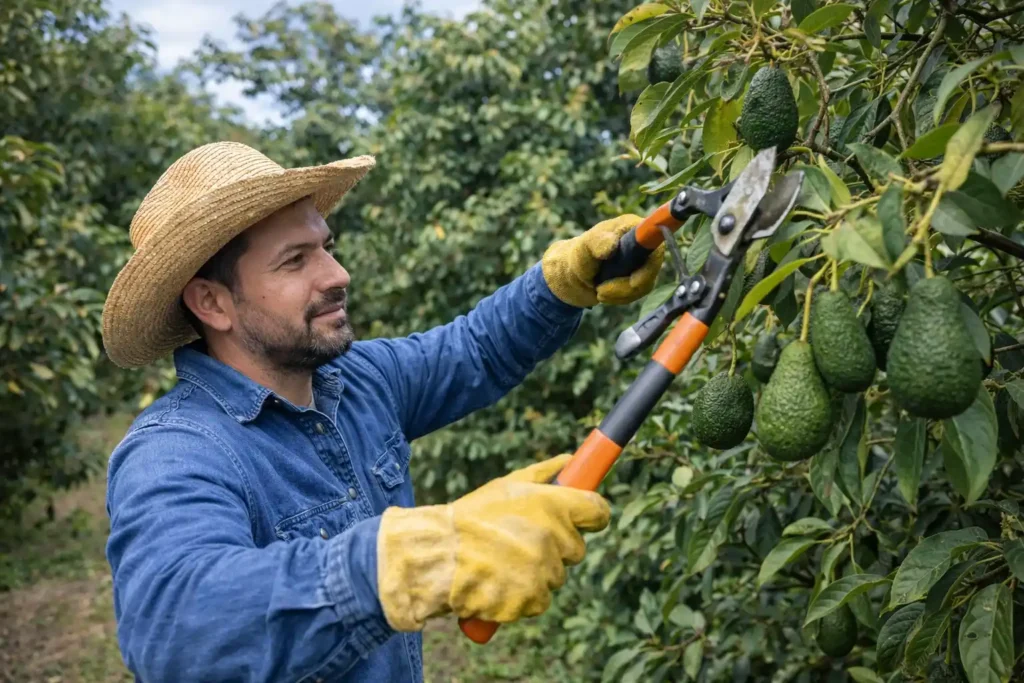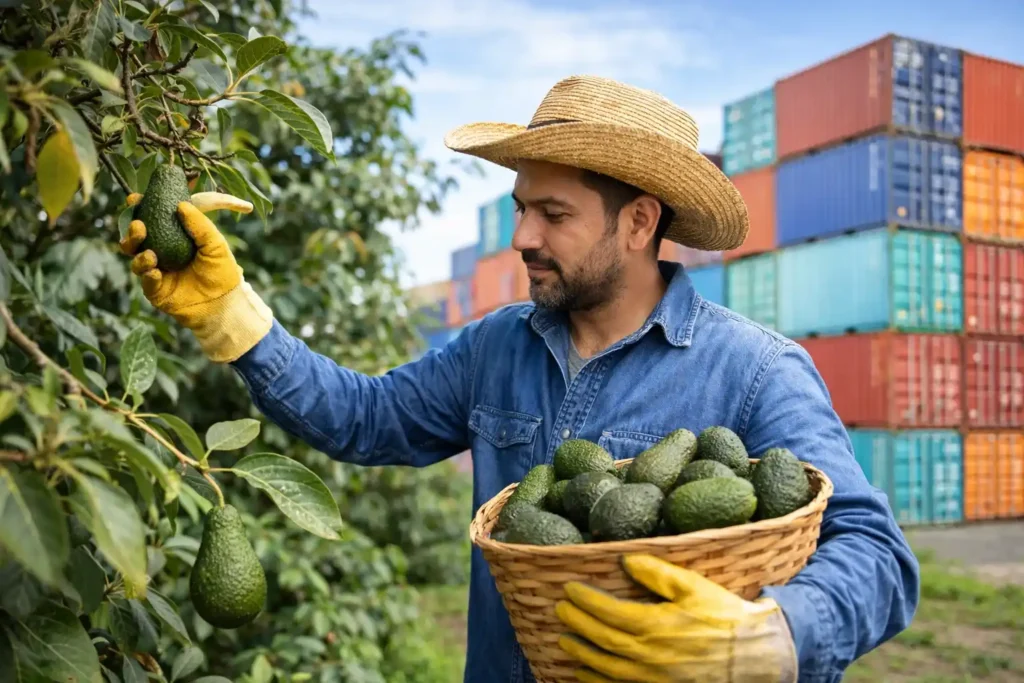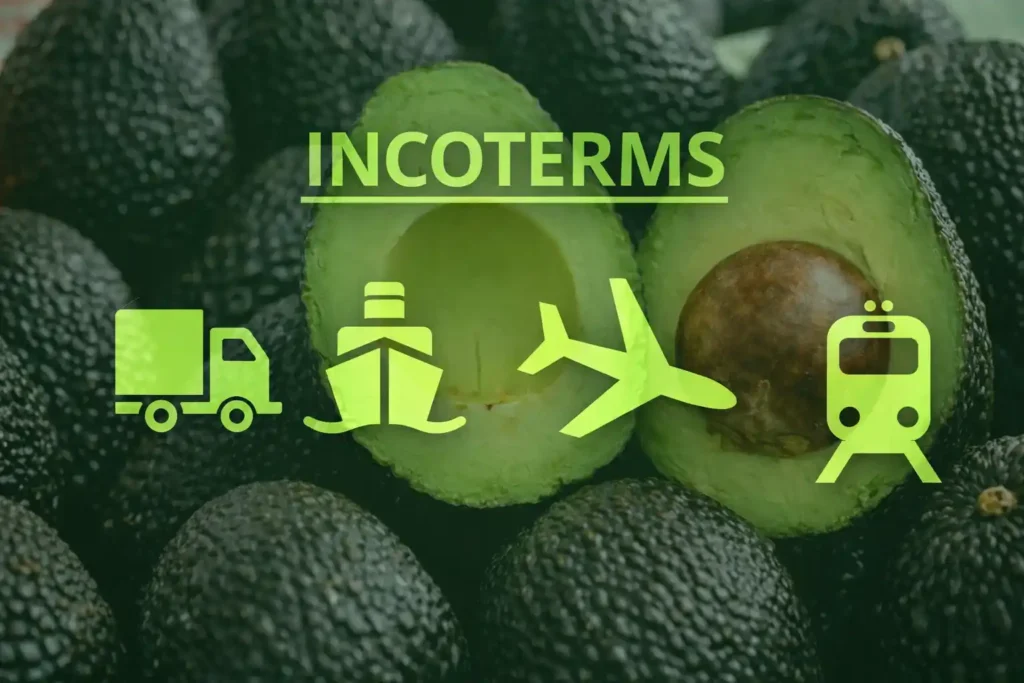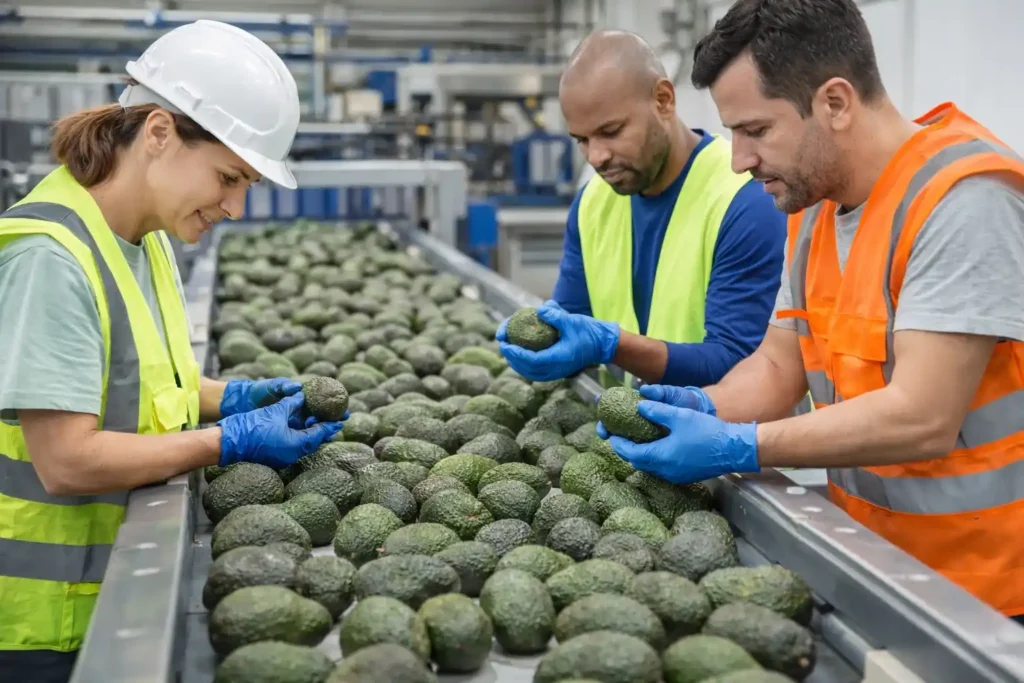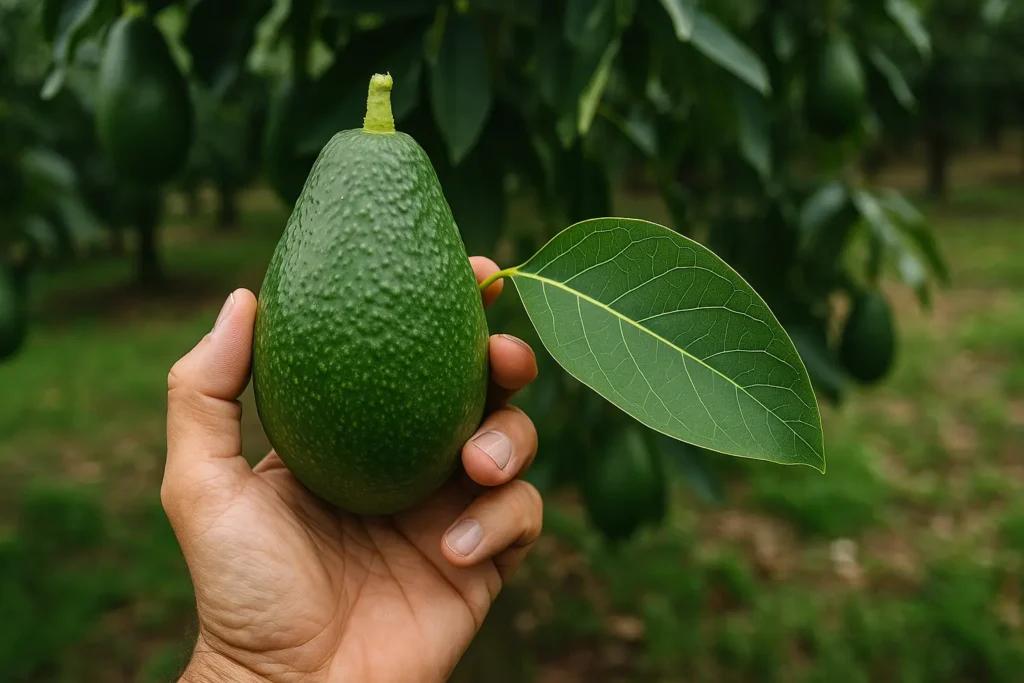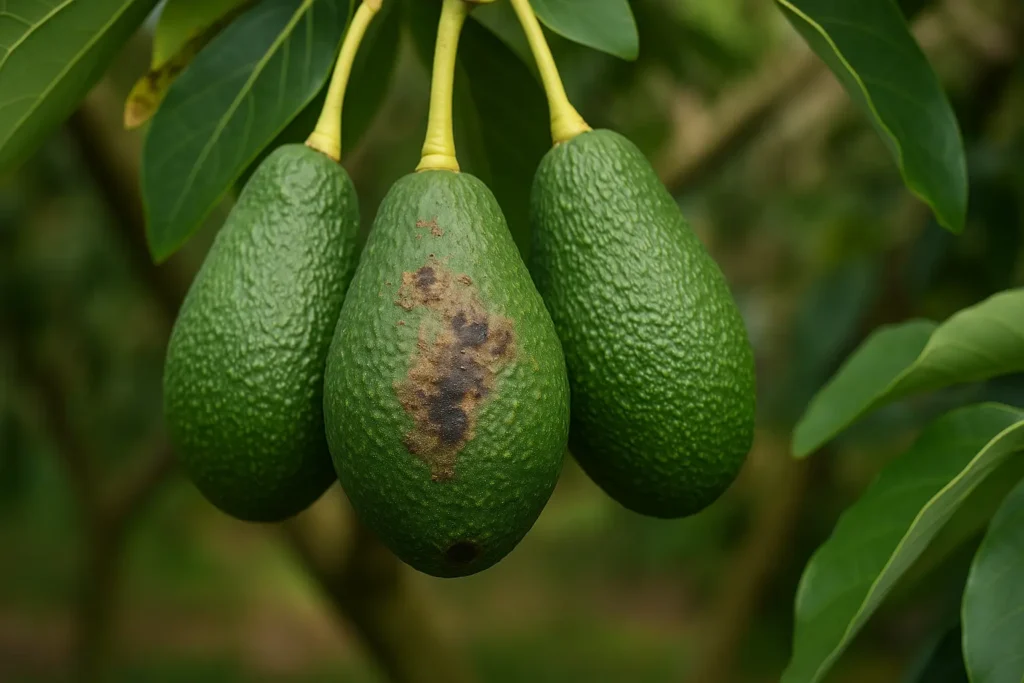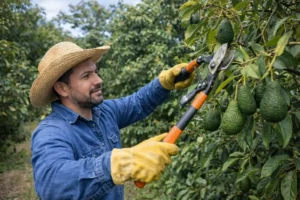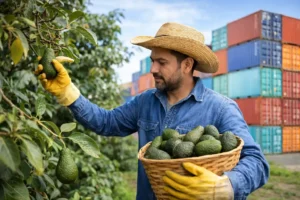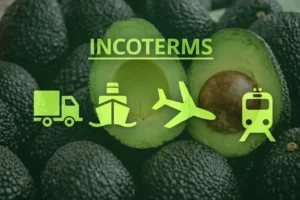The export of Hass avocado has become a thriving and competitive industry, especially in countries like Colombia, where the climate is perfect for its cultivation. However, in order to access international markets and guarantee the quality of the product, it is crucial to obtain the certifications to export avocado.
In this article, we will break down the necessary certifications, their relevance, and the benefits they entail. Join us in this comprehensive guide and discover how you can elevate your avocado business to the next level, meeting the most demanding global standards. Get ready to become a benchmark in the Hass avocado industry and open the doors to new international opportunities!
The Hass avocado, known for its flavor and texture, has seen increasing demand globally. Colombia, with its favorable climate and fertile soils, has positioned itself as an important exporter of this fruit.
Exporting Hass avocado not only requires a quality product, but also compliance with a series of international requirements and regulations. These regulations ensure that avocado reaches foreign markets in optimal conditions and meets food safety and quality standards. In this context, certifications to export avocado play a crucial role.
Importance of Export Certifications
Certifications for exporting avocado are essential to guarantee that the product meets international quality and safety standards. These certifications not only facilitate access to more demanding markets, but also increase the confidence of consumers and business partners in the product.
Below are some of the main reasons why certifications are important:
- Compliance with International Regulations: Certifications ensure that avocados comply with the regulations and standards of importing countries, avoiding legal problems and rejection of merchandise.
- Product Quality Improvement: Certification processes involve the implementation of sustainable agricultural and quality control practices that improve avocado quality, from cultivation to export.
- Access to New Markets: Many certifications are prerequisites for entering international markets. For example, GLOBALG.AP certification is frequently required by European retailers.
- Consumer Confidence: Consumers value certified products because they ensure responsible agricultural practices and the absence of contaminants. This can translate into greater demand and higher prices.
- Sustainability and Social Responsibility: Certifications often include environmental sustainability and social responsibility criteria, which enhances the company's reputation and contributes to the well-being of local communities.
In summary, certifications to export avocado are an investment in the quality, sustainability and commercial success of the product in the global market. By obtaining and maintaining these certifications, companies like Fruty Green can secure their position as leaders in the export of high-quality Hass avocados.
Main Certifications to Export Avocado
Exporting Hass avocado successfully requires complying with several certifications that guarantee the quality, safety and sustainability of the product. Here we detail the main certifications necessary to export avocado:
GLOBALG.AP
GLOBALG.AP is one of the most widely recognized certifications for agricultural products worldwide. It ensures that agricultural practices meet food safety, environmental sustainability and worker well-being requirements. Obtaining this certification is crucial for accessing markets such as the European one.
SMETA Certificate
The SMETA (Sedex Members Ethical Trade Audit) Certificate focuses on ethical management in the supply chain. Evaluates labor practices, health and safety, environment and business ethics, ensuring Fruty Green operations are responsible and transparent.
Certification in Good Agricultural Practices (GAP)
Also managed by the ICA, this certification ensures that safe and sustainable agricultural practices are followed, complying with hygiene and quality standards. It is essential to ensure that avocados are safe for consumption and comply with the regulations of importing countries.
Rainforest Alliance
This rainforest certification focuses on sustainable agricultural practices that protect the environment and promote the social and economic well-being of farming communities. It is especially valued in markets that prioritize sustainability.
BASC
The certification BASC (Business Alliance for Secure Commerce) promotes security and transparency in commercial operations. It helps prevent illicit activities such as smuggling and terrorism, ensuring that Fruty Green products are transported safely and legally.
BRC World Food Safety Standard Grade AA
This certification ensures compliance with strict requirements for selection, classification, post-harvest treatment, packaging and cooling. Ensures that products meet the highest international food safety standards.
Certification Obtaining Process
Get the certifications to export avocado It may seem like a complex process, but by following these steps, companies can meet the necessary requirements efficiently:
- Initial evaluation: Conduct an internal assessment of current cultivation and production practices to identify areas that need improvement to meet the standards of the desired certification.
- Training: Provide training to employees and workers on the practices and standards necessary to obtain certifications. This includes sustainable agricultural techniques, chemical management, and food safety.
- Implementation of Best Practices: Adapt agricultural and management practices according to certification requirements, including the adoption of organic growing techniques, improvements in water and land management, and measures to ensure the well-being of workers.
- Documentation: Maintain detailed records of all agricultural practices, including input use, waste management and working conditions. This documentation is essential for certification audits.
- External audit: Hire an accredited certifying entity to perform an external audit. Auditors will review documentation and visit facilities to verify compliance with certification standards.
- Correction of Non-Conformities: If the audit identifies nonconformities, corrective action must be taken and a new audit performed if necessary. The certifying entity will provide a report detailing areas for improvement.
- Obtaining Certification: Once all non-conformities have been corrected and standards are met, the certifying body will issue the certification. It is important to maintain the practices implemented to ensure the renewal of certification within the established periods.
Are certifications to export avocado They not only open doors to new markets, but also promote sustainable and responsible agricultural practices, benefiting both the producer, the environment and the community.
Implementing these certifications ensures that Hass avocado meets international quality and safety standards, allowing its access to demanding global markets such as Europe and the United States.
Benefits of Certifications to Export Avocado
Obtaining certifications to export avocado offers multiple benefits that positively impact both producers and consumers. These benefits are reflected in the quality of the product, the expansion of markets and the sustainability of agricultural practices.
Social responsability: The certifications also cover aspects of social responsibility, ensuring that working conditions are fair and safe. This not only improves the well-being of workers, but also strengthens the company's reputation as a responsible and ethical employer.
Access to International Markets: Certifications are often essential requirements to enter international markets. Countries such as those in the European Union, the United States and Japan demand high standards of quality and food safety, which are ensured through certifications such as GLOBALG.AP and Organic Certification. By having these certifications, avocado producers can access these premium markets, expanding their business opportunities.
Improved Consumer Confidence: Today's consumers increasingly value products that guarantee quality, safety and sustainability. Certifications provide a seal of guarantee that increases consumer confidence in the product. This not only helps maintain customer loyalty, but can also justify higher prices in the market.
Optimization of processes: The process of obtaining certifications requires the implementation of best agricultural and management practices. This includes the efficient use of resources, the proper management of chemicals and the improvement of working conditions. These practices not only meet certification standards, but also optimize productivity and operational efficiency.
Environmental sustainability: Many certifications, such as the Rainforest Alliance and Organic Certification, promote sustainable agricultural practices that protect the environment. This includes water conservation, protecting soil and biodiversity, and reducing the use of pesticides and chemical fertilizers. By adopting these practices, producers contribute to the long-term sustainability of their crops and the natural environment.
Fruty Green: A Trusted Exporter
At Fruty Green, we are committed to quality, sustainability and social responsibility at every stage of our Hass avocado production. We are proud to have the most internationally recognized certifications for exporting avocado, which positions us as a trusted exporter in the most demanding markets.
These certifications not only reflect our commitment to excellence, but also assure our customers and business partners that they are purchasing products of the highest quality, produced responsibly and sustainably.
To learn more about our certifications and learn more details about our commitment to quality, we invite you to visit our certifications page.

